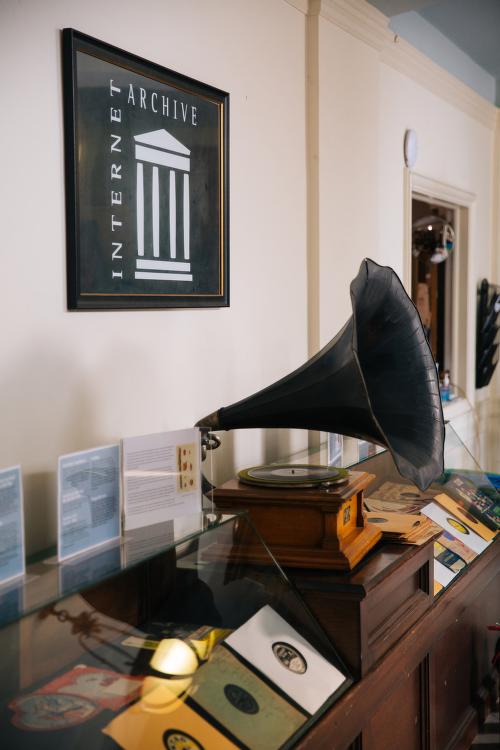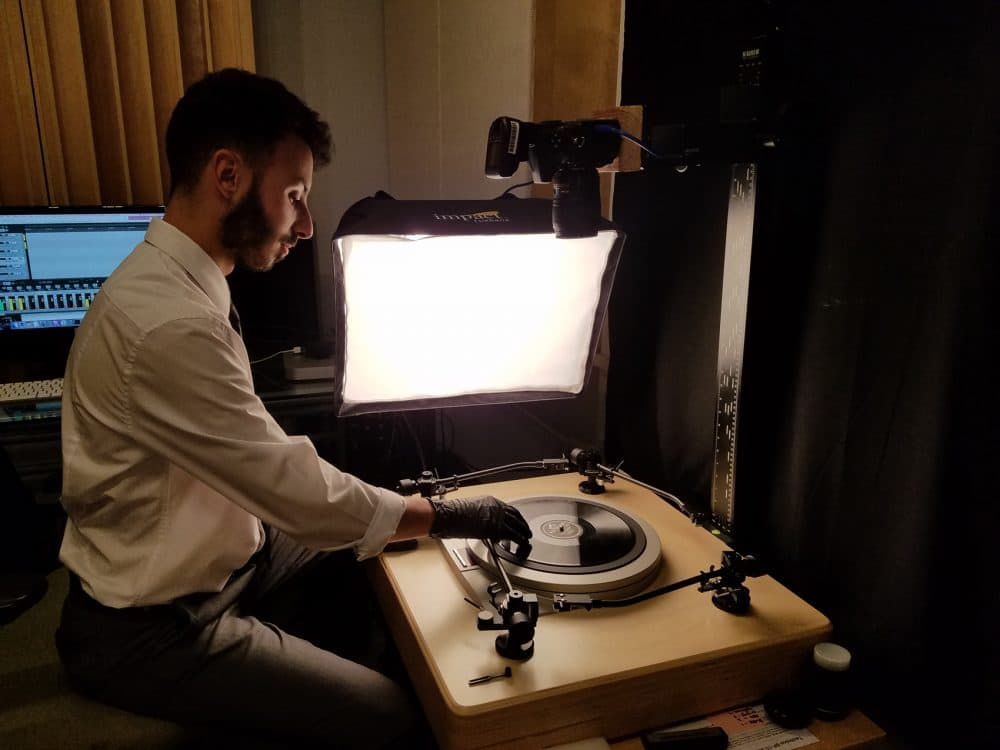

Internet Archive Responds to Recording Industry Lawsuit Targeting Obsolete Media
source link: https://blog.archive.org/2023/08/14/internet-archive-responds-to-recording-industry-lawsuit-targeting-obsolete-media/
Go to the source link to view the article. You can view the picture content, updated content and better typesetting reading experience. If the link is broken, please click the button below to view the snapshot at that time.
Internet Archive Responds to Recording Industry Lawsuit Targeting Obsolete Media
Late Friday, some of the world’s largest record labels, including Sony and Universal Music Group, filed a lawsuit against the Internet Archive and others for the Great 78 Project, a community effort for the preservation, research and discovery of 78 rpm records that are 70 to 120 years old. As a non-profit library, we take this matter seriously and are currently reviewing the lawsuit with our legal counsel.
Of note, the Great 78 Project has been in operation since 2006 to bring free public access to a largely forgotten but culturally important medium. Through the efforts of dedicated librarians, archivists and sound engineers, we have preserved hundreds of thousands of recordings that are stored on shellac resin, an obsolete and brittle medium. The resulting preserved recordings retain the scratch and pop sounds that are present in the analog artifacts; noise that modern remastering techniques remove.
Statement from Brewster Kahle, digital librarian of the Internet Archive:
“When people want to listen to music they go to Spotify. When people want to study 78rpm sound recordings as they were originally created, they go to libraries like the Internet Archive. Both are needed. There shouldn’t be conflict here.”
These preservation recordings are used in teaching and research, including by university professors like Jason Luther of Rowan University, whose students use the Great 78 collection as the basis for researching and writing podcasts for use in class assignments (University Professor Leverages 78rpm Record Collection From the Internet Archive for Student Podcasts, June 9, 2021). While this mode of access is important, usage is tiny—on average, each recording in the collection is only accessed by one researcher per month.
A technician uses a 4-arm turntable to digitize a 78 rpm record.While we review the lawsuit, we remain dedicated to our mission of providing “Universal Access to All Knowledge.” We are grateful for the continued support of our library patrons and partners as we continue to fight these attacks.
For more information or media inquiries, please contact [email protected].
LINKS
Posted in Announcements, Music | Tagged 78rpm, 78s | 3 Replies
Post navigation
3 thoughts on “Internet Archive Responds to Recording Industry Lawsuit Targeting Obsolete Media”
-
Hasford Albrecht August 15, 2023 at 1:31 pm
Thank you for letting us know about this. It is almost as though there is a competition underway to establish which multi-billion dollar industry can behave in the greediest, stupidest, and most short-sighted manner: publishing or recording.
At present, they appear to be running neck and neck.
Reply ↓ -
Daniel August 16, 2023 at 12:39 pm
Always be prepared to say goodbye to the Internet Archive, because desperate industries who can (still) afford unscrupulous and unethical lawyers will aways try to squeeze some bucks out of whatever seems like a somewhat promising target. We’ve had books, now we have music, just wait for cinema, television, software and videogames next. And maybe round 2 and 3 for some of them, until “we can’t have nice things” anymore. It’s just a question of which companies care little enough about how badly they (further) ruin their public image.
I know quite a few people working in the music industry, including at major labels. Rest assured, they’re all fully aware that there is no economical damage being caused to them in cases like this. Sometimes, it’s a desparate acknowledgement that the music industry is losing attention span to the many other ways people of today have to spend their limited spare time, but in this case, it’s plainly obvious how much of a niche the 78 archive is and that this isn’t an issue here. Before the days of streaming services, these lawsuits were the record industry’s admission that their old business model is failing and they’re too technically inept to adapt. But this isn’t the case anymore, either. This time, it’s really purely about corporate greed. Where could we squeeze out some more money that we didn’t earn, that we didn’t do any work for, to make our shareholders happy?
But the most important thing to point out is always this: the most blatant lie these record labels are trying to get you to believe is that they do this for the benefit of the artists. These labels are the last entities on Earth who care about the artists. They’re the reason why it’s so hard making a living as a musician, or working in any other capacity in the music industry except “label executive”. They’re the ones who have perfected the scammy practices that, for the past century, have kept musicians constantly struggling and indebted to them. They wouldn’t leave, and have never left, any possibility to further rip off artists for their own financial gain. As they are doing today with the streaming service market. Look at the financial performance of these organisations, then look at how much artists signed to them are being paid. No further proof is needed to discredit everything they claim about their motivations. They’re rip-off artists, they always have been, and they show no signs of being interested in turning to honest, reputable business models, which would actually offer fair terms to the artists whose work they rely on. They’re the corporate equivalent of con artists or loan sharks, plain and simple.
It’s the same story every time. They try to sue for money instead of offering something to earn it honestly, wantonly disregard and let rot in their archives pieces of our shared cultural heritage, string artists along with great promises while making sure that they stay poor, all the while paying a huge machinery for PR and conscience-free lawfirms to try and make us believe that they’re the good guys.
Major labels are the worst thing that could ever have happened to music artists, and to the cultural heritage of music. Now that there’s as little need for their existance as ever before (considering the accessibility of recording facilities, record production, and distribution), the sooner they go out of business, the better for everyone involved in music. Between 1999 and 2012, six major record labels turned into a remaining three. Let’s hope it doesn’t take long until the world is free of the last three.
Reply ↓ -
Luke August 17, 2023 at 6:36 am
Get ready to do EVERYTHING on the dark net in the future. There are already protocols similar to Tor but which unlike the Tor network are optimized for anonymous filesharing. Such protocols could be combined with hidden servers not accessable outside the network to keep necessary files seeded at all times. The music and book publishers are not the NSA, they will NOT have the resources to fight the dark net.
I never bought another CD after I first heard of the filesharing lawsuits and I never will. Tens of millions doing the same crushed those harassment suits.
Reply ↓
Leave a Reply Cancel reply
Your email address will not be published. Required fields are marked *
Comment *
Name *
Email *
Website
Recommend
About Joyk
Aggregate valuable and interesting links.
Joyk means Joy of geeK

